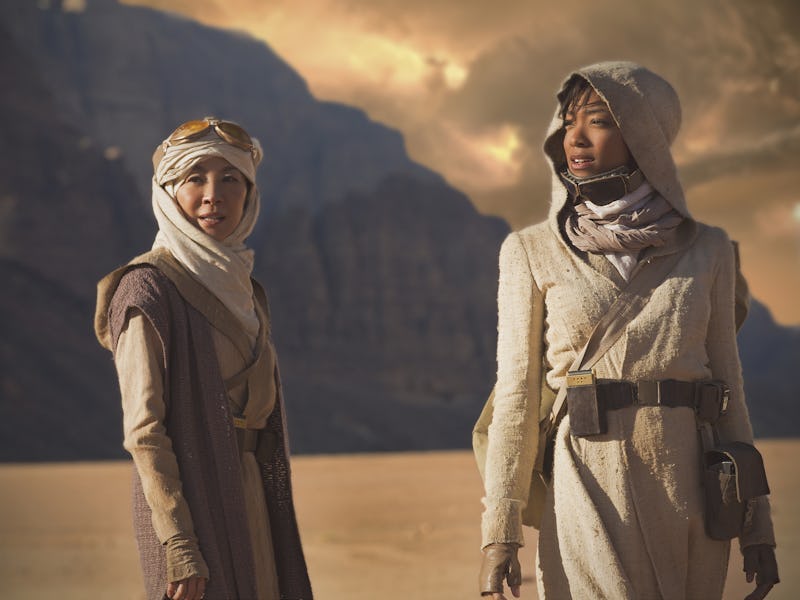The female members of Starfleet are given agency beyond their male counterparts in Star Trek: Discovery, just as they should be. Because of this, Discovery passes the infamous Bechdel test with ease, following a recent, ridiculously simple, trend in television.
Of course, Star Trek creator Gene Roddenberry intended for his futuristic fictional universe to be an all-inclusive society, one that’s moved past sexism, racism, and general xenophobia. All humans are equal in Star Trek — any issues that remain mostly revolve around cultural differences between alien species rather than superficial bullshit. So, uh, internalized misogyny is also a thing of the past.
Internalized misogyny is just what it sounds like: people who identify as women internalizing a culture’s biases against and stereotypes of women, especially in a male-dominated society that often demeans the skills or value of its non-male members. Women then turn that internalized misogyny out on other women and even themselves, resulting in less social support and, often, less acceptance of “feminine” traits.
This subconscious practice often comes out in fiction, resulting in female-identifying characters who “don’t like other women,” always prefer to hang out with men, and who are termed “one of the boys.” Because of internalized misogyny, even female-identifying writers often can’t write a dialogue between two female characters without them talking about men.
That’s where the Bechdel test comes in.
The Bechdel test, which is really more of a bare minimum than any sort of worthwhile measurement, is laughably simple: Two women have to have a single conversation about something other than a man. And, despite the simplicity of this “test,” a good majority of fictional works don’t pass.
Unsurprisingly, Star Trek: Discovery passes with flying colors.
Within the first three episodes, Discovery has blown a majority of other shows out of the water in its inclusivity and acceptance amongst its characters (especially humans). The lead characters of the first two episodes were Michelle Yeoh (RIP, Captain Philippa Georgiou) and, of course, Sonequa Martin-Green (First Officer Michael Burnham), formidable women of color in lead roles in Starfleet. And while Captain Georgiou’s sudden death at the end of Episode 2 might have scared some fans into thinking the female character burden would suddenly all fall onto Martin-Green’s Burnham, Discovery quickly puts Cadet Tilly (Mary Wiseman) into the picture.
Episode 3, “Context is For Kings,” introduces Burnham’s relationship with Tilly. And while the majority of the speaking characters on Discovery are still male-identifying (that we know of), at least the writers haven’t forgotten the importance of female relationships outside of male definement.
This is, kind of, a trend in recent entertainment, especially in television. Female characters in HBO’s Westworld, debatably, passed the Bechdel test left and right (despite being robot prostitutes) and Hulu’s award-winning The Handmaid’s Tale revolved around female characters striving to define themselves outside of the male context of their new, oppressive reality.
We can only hope Discovery continues down the same path of inclusivity, positive relationships, and smart, realistic writing.
Star Trek: Discovery airs on CBS All Access Sundays at 9 p.m. Eastern.
If you liked this article, check out this video on Inverse’s review of Star Trek Discovery.
